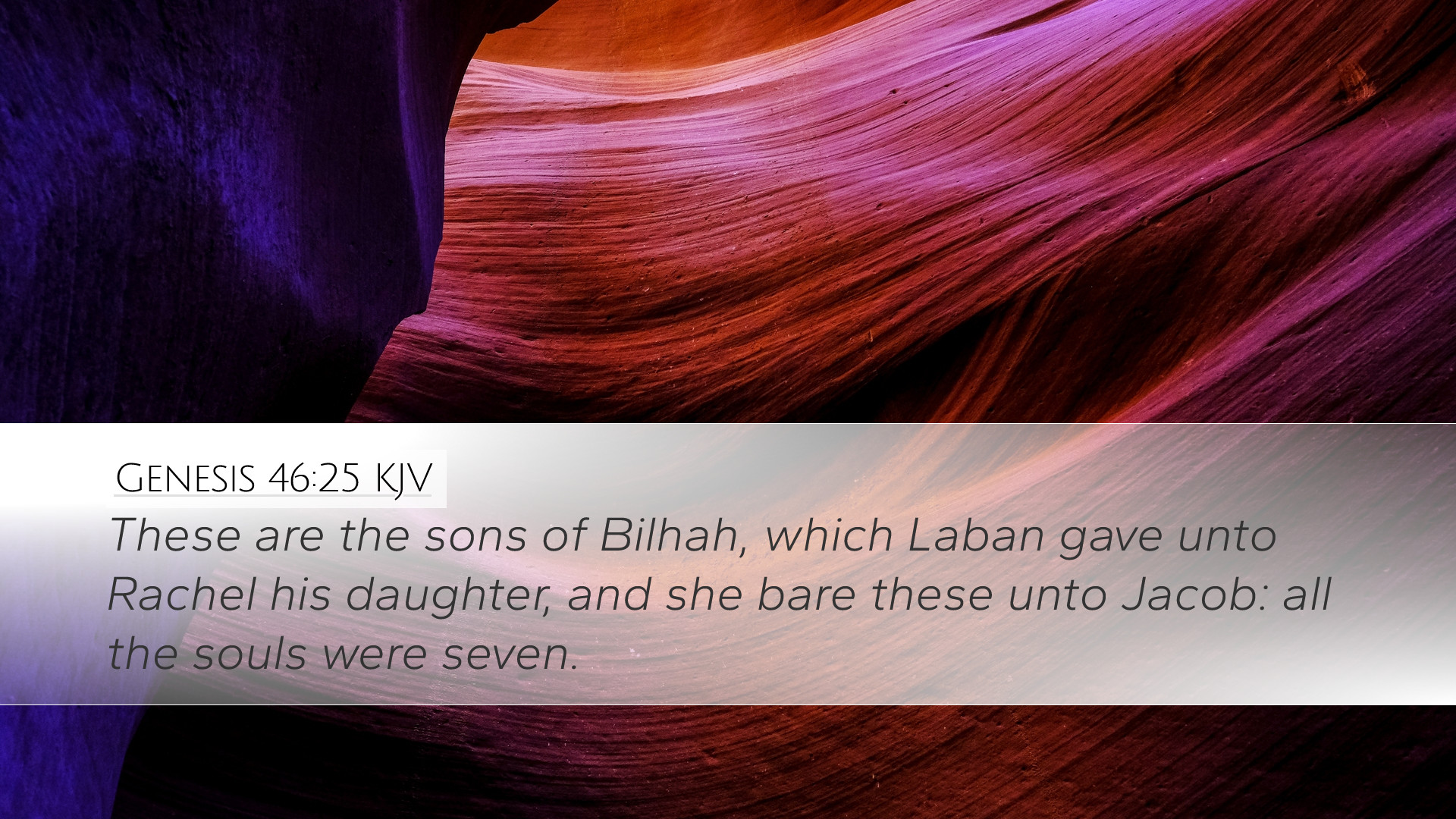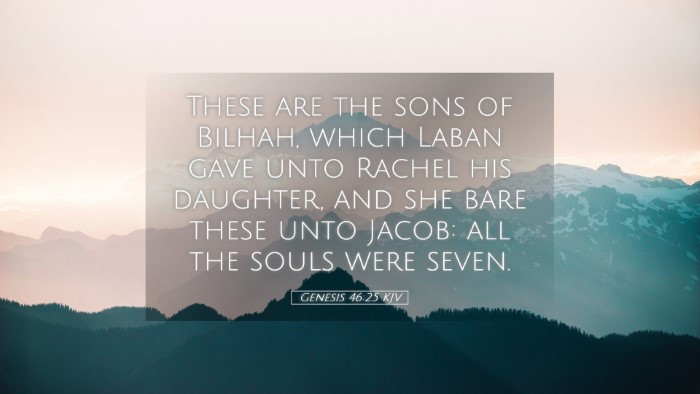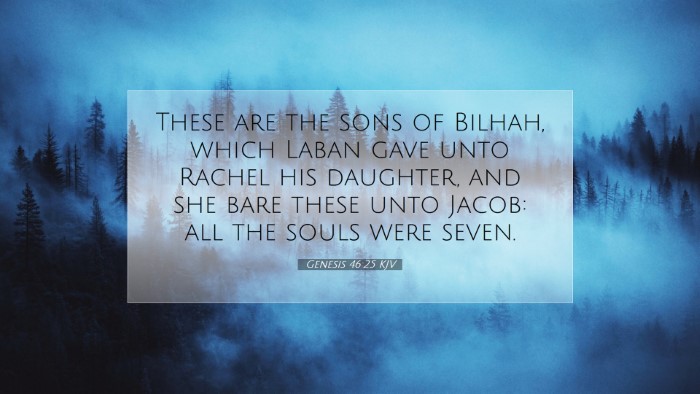Commentary on Genesis 46:25
Genesis 46:25: "These are the sons of Bilhah, which Laban gave unto Rachel his daughter, and she bore these unto Jacob: all the souls were seven."
Introduction
This verse forms part of the genealogy of Jacob (Israel) and is significant in the broader narrative of the Israelite lineage. It enumerates the descendants of Jacob through Bilhah, Rachel's maid, weighing their importance in the unfolding of Israel’s history.
Contextual Overview
In the preceding chapters, the familial structure of Jacob's household is established, emphasizing the overarching narrative of reconciliation, restoration, and covenant. This verse appears as Jacob is preparing to move to Egypt, marking a pivotal point in the historical journey of the Israelites.
Exegesis
1. The Identity of Bilhah: Bilhah is introduced as Rachel’s maid, who was given to Jacob to bear children when Rachel struggled with barrenness. This practice highlights the cultural norms of the time regarding lineage and inheritance, which were crucial for establishing family legacy.
2. The Number of Descendants: The reference to the total being seven is significant. Each child represents not only an extension of Jacob's family but also the fulfillment of God's promise to multiply his descendants. The use of the number seven can be interpreted as completeness, often seen in biblical numerology.
Theological Implications
The listing of Bilhah's children invites reflection on God's sovereignty in the lives of His people. It emphasizes that even through secondary means (in this case, a maidservant), divine purposes are fulfilled. The text encourages believers to recognize God's hand in all aspects of life, even those that appear less direct.
- Generational Blessing: The divine blessings continue through Jacob’s lineage, demonstrating how God's favor is exercised through familial ties. Each child becomes a component of the larger destiny of Israel.
- The Role of Women: Bilhah’s role, while seemingly secondary, reflects the important part women played in the covenant promises of God, showing that they were not mere background figures but active participants in God's plan.
Commentary Insights
Matthew Henry's Perspective
Matthew Henry emphasizes the significance of the family units in understanding the historical context of Israel. He suggests that each name mentioned carries the expectation of future relevance, indicating that each descendant will contribute to the story of Israel as it unfolds. Henry notes how God fulfills His promises even amidst human imperfection, exemplified in the dynamics of Jacob’s household.
Albert Barnes’ Interpretation
Albert Barnes provides insights into the tribal structure of the children of Jacob and their eventual roles in the formation of the nation of Israel. He sees Bilhah's children not just as offspring, but as essential elements in the development of the future tribes. Barnes highlights the importance of recognizing God's providence in the arrangement of these familial relationships and the implications for leadership and legacy in Israel's history.
Adam Clarke's Observations
Adam Clarke dives deeper into the cultural practices that led to Bilhah bearing children for Rachel. He remarks on the ancient customs surrounding surrogacy and how these practices were accepted in the Hebrew society of the time. Furthermore, Clarke notes that the genealogy reflects both blessings and challenges faced by the lineage, proposing that it serves as a reminder of the complexities in God's plans. His commentary underscores the theological point that God's providence often intertwines through human decisions and actions.
Application for Today’s Believers
The insights gleaned from Genesis 46:25 encourage contemporary readers to consider their own familial relationships and the idea of legacy. As pastors and theologians reflect on this passage, they are reminded of the importance of nurturing faith within the family unit, as it is through these relationships that God often works. It serves as a call to recognize the active role of God in their lives and the lives of their congregants, assuring them that every person, regardless of their status, carries intrinsic value in God’s narrative.
Conclusion
Genesis 46:25 acts as a critical link in understanding the unfolding narrative of Israel's history, emphasizing the intertwining of human actions with divine will. It speaks powerfully to themes of family, legacy, and the faithfulness of God throughout generations. The reflections provided in the commentaries help pastoral leaders, students, and scholars appreciate the depths of scripture and its relevance today.


